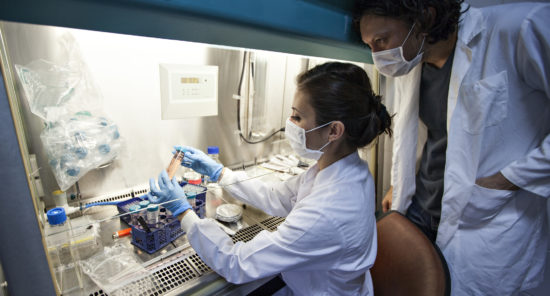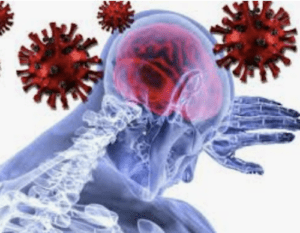In a randomized trial on patients with diarrhea-predominant irritable bowel syndrome (IBS-D), researchers evaluated the effects of pre-treatment antibiotics on post-fecal microbiota transplantation (FMT) bacterial engraftment—the mechanism by which FMT is thought to correct microbial dysbiosis—as well as on patients’ gut microbiome and symptom burden. The study, published in Gut Microbes, summarized that antibiotic pre-treatment “significantly reduced bacterial engraftment after FMT in patients with IBS-D… suggesting that future FMT trials in IBS should not be preceded by antibiotics.”
The study’s lead author, Prashant Singh, added that “there was considerable improvement in IBS symptoms with FMT (with or without antibiotic pretreatment), however, this improvement was not statistically significantly different than placebo.” The full report also highlighted the interesting observation that “bacterial engraftment with FMT did not impact symptom response in IBS-D.”
The trial enrolled a total of 44 patients with IBS-D with at least moderate severity—defined as a score ≥175 on the IBS symptom severity scale (IBS-SSS). Patients were randomized between four groups: single-dose oral FMT, single-dose oral FMT after pretreatment with ciprofloxacin and metronidazole (CM-FMT) or rifaximin (R-FMT), or placebo FMT. The primary outcome was engraftment post-FMT, while secondary endpoints included changes in IBS-SSS and IBS-quality of life (IBS-QOL) at 10 weeks.
According to the article, the median rate of engraftment was significantly different among the three groups who received FMT (p = 0.013). The rate of engraftment was highest in the FMT only arm (15.5%), followed by the R-FMT arm (5%; p = 0.04), and then the CM-FMT arm (2.4%; p = 0.002). Overall, the researchers found that “the mean change in IBS-SSS and IBS-QOL from baseline were not significantly different among the four groups or between the three FMT groups combined vs. placebo at week 10.”
The study’s authors concluded that antibiotic pretreatment significantly reduced post-FMT bacterial engraftment, and FMT itself was not superior to placebo for improving gastrointestinal symptoms in patients with IBS-D. In their conclusion, the authors advised that “future studies investigating the role of FMT in IBS via other routes should investigate the underlying mechanisms of the benefit with FMT (if any).”
Source: https://www.tandfonline.com/doi/full/10.1080/19490976.2021.2020067








